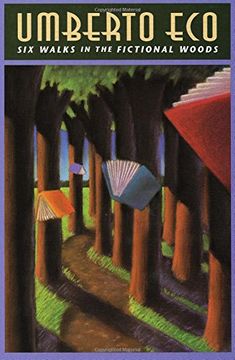
Six Walks in the Fictional Woods (en Inglés)
Umberto Eco (Autor) · Harvard University Press · Tapa Blanda
$ 23.58
$ 32.00
Ahorras: $ 8.42
Elige la lista en la que quieres agregar tu producto o crea una nueva lista
Ir a Mis Listas¿Tienes una pregunta sobre el libro? Inicia sesión para poder agregar tu propia pregunta.
